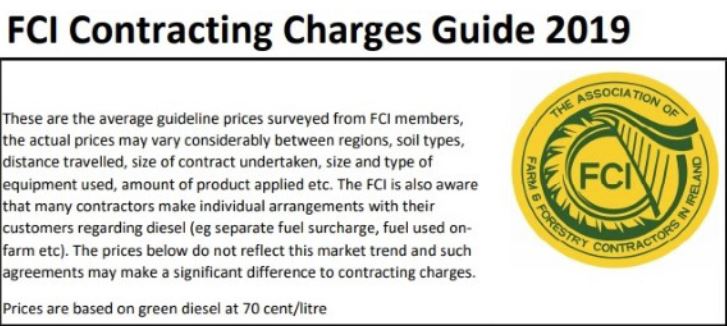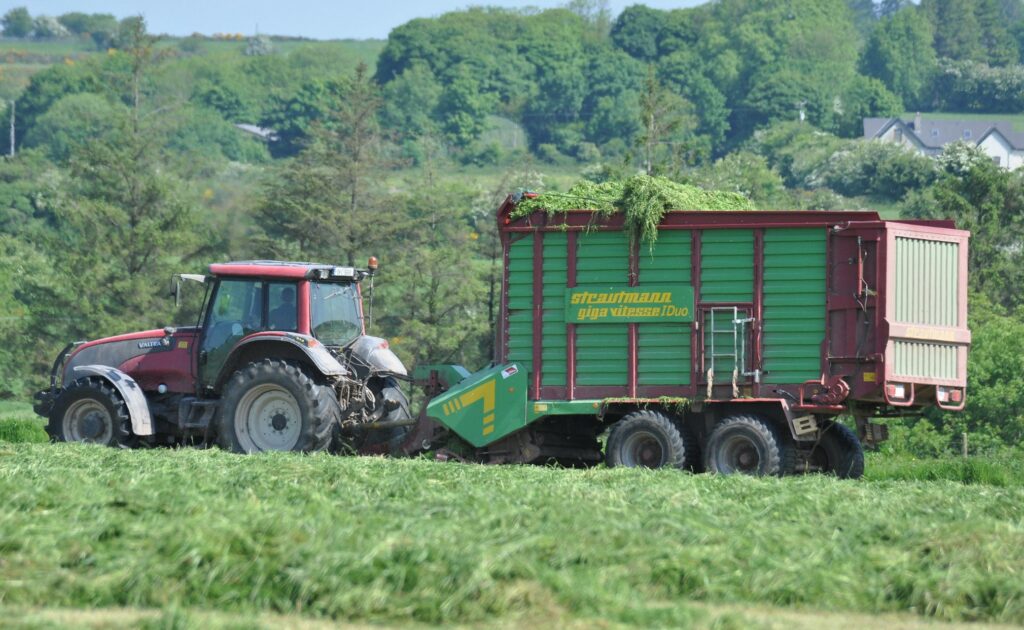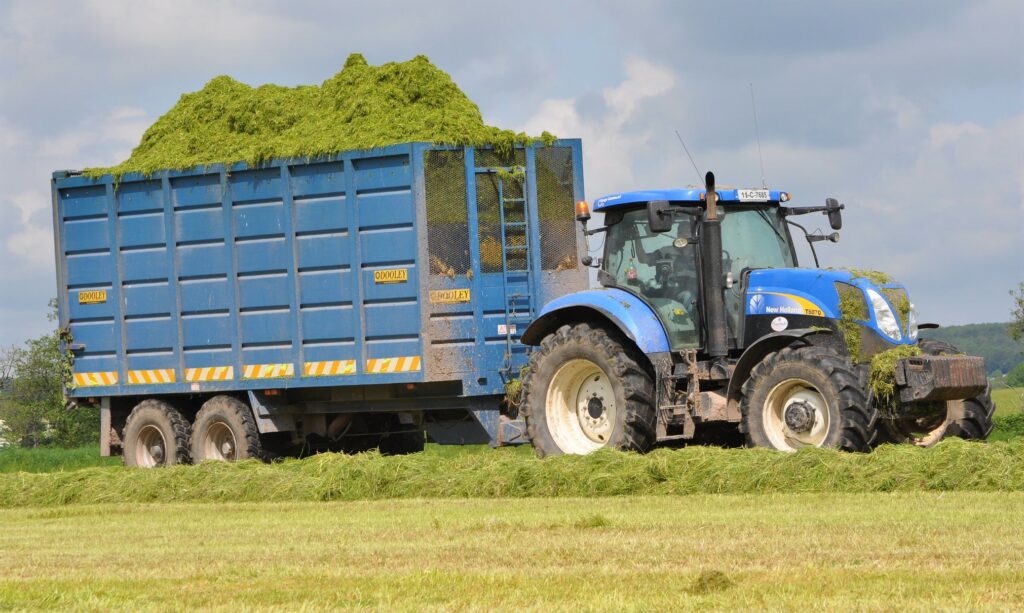The Association of Farm & Forestry Contractors in Ireland (FCI) is busy publicising its ‘Contracting Charges Guide’ for 2019, which encompasses a range of silage-cutting rates.
Interestingly, mowing (with a conditioner-equipped machine) is ‘guiding’ at €21/ac (excluding VAT) – up from €20/ac last year. Raking or tedding is coming in at €11/ac – up from €10/ac last year.
One of the headline figures is a ‘guide rate’ of €115/ac for harvesting (precision-chop) silage. That’s for the complete job – including mowing and pit work. It’s up marginally on the figure quoted in 2018, which stood at €110/ac.
A figure of €105/ac is being ‘guided’ for silage harvested with wagons (again including mowing and pit work). This is also up, albeit slightly, from €100/ac last year.
It’s worth noting that, aside, the FCI quotes a ‘guide rate’ of €55/hour for a 10t loading shovel (including fuel and the operator). The rate for a tractor is circa €45-55/hour.
All of the ‘guide rates’ referenced above are exclusive of VAT (13.5%). Of course, actual prices on the ground will vary – depending on any number of factors.
Meanwhile, the FCI has published a timely ‘Contractor Safety at Silage Time’ fact-sheet. It has advice for contractors and their farmer customers. It reads as follows:
What can contractors do to keep farmers healthy and safe?
Contractors must make sure that any risks from their work that could affect the farmer, farm workers or other contractors on the farm are reasonably managed. If a risk can’t be eliminated then it must be minimised, in so far as is reasonably practicable.
What can farmers do to keep contractors healthy and safe?
Farmers must make sure that:
- Any risks from farm work are reasonably managed (eliminated or minimised) to protect the health and safety of contractors;
- Risks from any previous work carried out on the farm (e.g. land drainage or levelling, spraying hazardous substances) are reasonably managed to protect the health and safety of contractors;
- Farm buildings and any area where work is being carried out are safe for everyone including contractors;
- Any risks from low overhead wires are made known to the contractor.
How can farmers and contractors co-ordinate activities?
Farmers and contractors must work together to meet their overlapping duties every time a contractor comes on the farm.
Having a face-to-face or over-the-phone meeting before work starts can help farmers and contractors to reach a common understanding and establish clear roles, responsibilities and actions. It will also prevent any gaps in managing health and safety risks.





